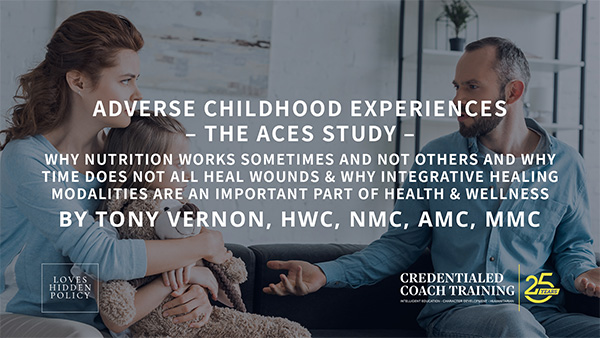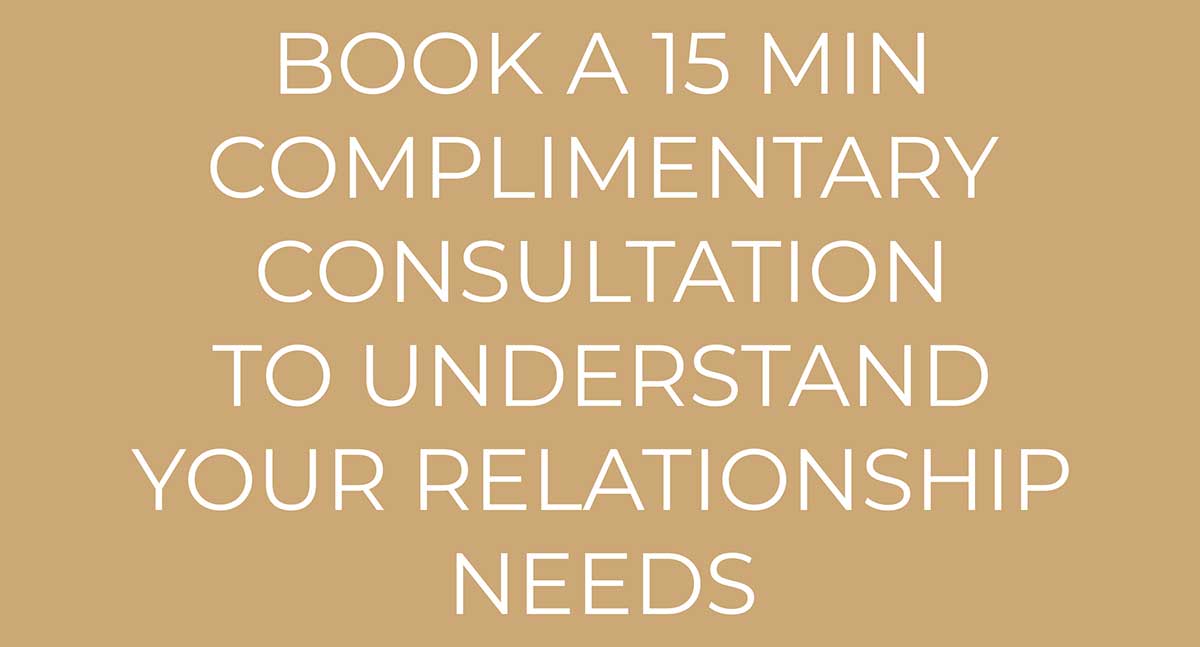
The Adverse Childhood Experiences (The ACEs Study) focuses on the adverse impact of traumatic or adverse childhood events on adult health. Adverse childhood experiences include physical and emotional abuse, mental illness of the caregiver, neglect, household violence, disruption at home and school, birth-related issues, etc.
The ACEs Study
The first ACEs study was conducted in the 1990s by Kaiser Permanente in collaboration with the Center for Disease Control. In the study, 17,337 middle-class adults at an average San Diego health maintenance organization (HMO) were assessed. The surveyors were asked whether they had bad physical and/or emotional experiences in their childhood. It produced shocking results. According to the study, between 64-67%, which constitutes two-thirds of the adults, had one or more types of childhood trauma. Around 38-42% had two or more types of childhood trauma.
The second ACEs study was conducted in the inner city of Nashville. In this study which was conducted in 2016, it was found that 71% of people had four or more types of childhood trauma, and 51% had six or more traumas. It would not be an exaggerated statement that more than half of the American population is suffering childhood trauma.
ACE Score and Physical Health
The study compared the ACE scores with the adult’s bio-medical conditions. The study shows that there is a strong correlation between the ACE score and the bio-medical condition. People who have had adverse childhood experiences are prone to numerous diseases like heart disease and cancer and not just because of unhealthy behavior as an adult, but because their nervous system and biochemistry remains under stress as an adult, as the past challenges are not resolved. So to put simply someone with an ACE score has an increased dominant stress-response permanently running in their body and brain. They are in essence still experiencing the trauma or stress from early experiences in their life as an adult.
Adverse childhood experiences can also lead to disabilities as an adult, impaired thinking, and even early death. Also, the study points out the ‘proportionate relationship between ACE score and the likelihood of developing autoimmune diseases decades later in adult life.’
Dr. Vincent Felitti M.D. and Dr. Robert Anda M.D. from the study expressed, Adverse Childhood Experiences set children up to a graded relationship to the presence of adult diseases including ischemic heart disease, cancer, chronic lung disease, skeletal fractures, and liver diseases. The seven categories of adverse childhood experiences were strongly interrelated and persons with multiple categories of childhood adverse experience exposure were likely to have multiple health risk factors later in life.
ACE Score and Mental Health
Apart from physical health, ACEs have an impact on mental health. In Dr. Felitti’s words, ‘the leading determinant of what happens to the health of a nation’s population. The ACEs study shows that a person’s rate of ACE is directly proportional to depression and chronic anxiety as an adult’.
Significance of The ACEs Study
Dr. Felitti says that this study happened accidentally. He was actually focused on finding out why Kaiser’s obesity clinic was not becoming as successful as expected. He interviewed multiple people who quit the clinic. The data struck his mind which led to The ACEs Study. After his retirement, he committed to the purpose of traveling around the world talking about the subject ‘Why the Most Significant Factor Predicting Chronic Disease May Be Childhood Adverse Experiences or Trauma.’
He too believed that time is not the healer of all wounds, though our popular belief says otherwise in public quotes by people without any clinical or research experience. No matter if it is 10 years or 50 years, people will not just get over traumatic experiences without the proper professional support to work through this on a mental and also body intelligence level. According to Dr. Felitti, humans convert traumatic emotional experiences in childhood into organic diseases later in life. As he puts it, there is no way one could dismiss this as a marginalized population. The people who attended the survey were mostly white middle-class. Nearly half of them had attended college and had jobs and health insurance.
Many researchers feel The ACEs Study didn’t receive as much attention from the medicine and psychiatry fraternity as it deserved, despite it being a massive and rigorous study that involved an official study of more than 17,000 citizens. More than 75 medical articles have now been published based on The ACEs Study illustrating its significance. Following the study, some states have carried out ACE surveys already. Also, some agencies have started to provide training in trauma-informed care as well. We can heal with awareness and the support of a highly skilled practitioner with: Coaching, Psychotherapy, EMDR, EMI and Cranial Sacral Therapy but the practitioner or practitioners must be highly skilled.
Attachment Disorders or Styles and The ACEs Study
More than half of the population in the US, my estimation is two-thirds have varying degrees of attachment styles or disorders. Adverse childhood experiences are one of the common reasons for attachment disorders in adults. As Mary Jo Barret, trauma specialist, puts it, ‘Humans from birth require a constant stream of emotional, spiritual, psychological, and physical inputs just as we require air, food, and liquid.’ She is a professor at the University of Chicago and the founder and director of the Center for Contextual Change.
When a child is deprived of physical, mental, emotional or communication needs, it will take that its own hard-wired biological needs are not met in the nervous system and brain and this nervous system dysregulation and altered brain chemistry will remain as an adult.
Daniel Siegel, a neuropsychiatrist and the best-selling author of the book ‘The Whole-Brain Child,’ describes, “I learn that what I experienced internally and expressed externally with a cry, was met by a response that didn’t make any sense. I learned: it doesn’t matter what I’m feeling, because people don’t get what I need. Ultimately, I’ll become disconnected, not only from other people but even from my own internal bodily self.” He further explains, “In states of distress I can only comfort myself in ways that are maladaptive – I bit myself, rocked myself perpetually, so I distracted myself from my needs.”
I, Tony Vernon, HWC, NMC, AMC, MMC grew up in a broken home with serious adverse child experiences, where communication was poor and the message that I was loved was very inconsistent. I definitely fell into the attachment disorder category for maybe all of the maladaptive attachment styles, but I worked hard to break these attachment styles with the use of coaching, counseling, exercise, healthy eating, building better relationships and developing my character to heal. Today, I am 90% healed and have a loving relationship and family with next to no issues, but personally I still feel I have more central nervous system work to heal to be at peace, so I use exercise daily to self-regulate and Cranial Sacral Therapy regularly as well as Emotional Freedom Techniques, as well as other modalities to work on healing deeper ways my body is responding involuntarily to any past stored stress still held in my being.
While mentioning The ACEs study at UCLA in 2013, Dr. Bruce Perry, M.D., Ph.D., pointed out that babies are hard-wired to be flooded with stress chemicals when those needs are not met and the flood can go on for decades. He was giving a speech ‘Born for Love: The Effects of Empathy on the Developing Brain’ at the conference and it is worth a watch here.
In the book ‘Coming Home to Self: The Adopted Child Grows Up’ Nancy Verrier M.D., Ph.D. says, “The baby thinks it’s going to die.” It is because the fight-flight stress chemicals rise in the bloodstream to the point that the baby feels it would rather pass out or die than feel it.
The ACEs Study and Health Risks
If the adverse childhood experiences are left untreated, they can lead to physical illnesses in the future. The stress chemicals and feelings of panic or anxiety can lead to serious health issues. Quoting a CDC report, “The ACE Study findings suggest certain adverse childhood experiences are major risk factors for the leading causes of illness and death in the USA. As ACE scores increase, the risk for the various health illnesses increase in a strong and graded fashion.” The health problems listed in the report include ischemic heart disease, cancer, chronic lung disease, liver disease, skeletal fractures, alcoholism and alcohol abuse, depression, fetal death, early initiation of smoking, illicit drug use, and more. Furthermore, it is often the cause of having multiple sexual partners, sexually transmitted diseases, unintended pregnancies, abortion, and suicide attempts. It also increases the risk of intimate partner violence as well.
Another study which was conducted in 2012 among 6,000 Britons who were born in 1958 has some good insights to offer. The study with the title ‘Childhood adversity as a risk for cancer: findings from the 1958 British birth cohort study,’ is one of the significant studies on the effect of ACEs on health. According to the study which was published by the British Medical Council, ‘the odds of having cancer before 50 among women increased twofold for those who had 2+ ACEs versus those with no ACEs.’
Dr. Felitti pointed out that this was one the largest studies of its type which has ever been done to examine the effect of ACEs on health, over the course of a lifetime. He assured that all the participants who took part in The ACEs Study will be monitored for their health status all their life.
In one of his videos, Dr. Felitti says, “We found that ACEs are remarkably common – what is uncommon is their recognition or their acknowledgment. “They are well-concealed by time, by shame, by secrecy, and by social taboo. They turn out to be strong predictors of what happens later in life in health risks, disease, and premature mortality. The combination of their high prevalence, and their great power, makes ACEs the leading determinant of what happens to the health of a nation’s population.”
Check your ACE Score
If you think you have ACEs or hidden ACEs from the past, check your ACE score here.
If you feel you need professional help, find a highly skilled practitioner or practitioners that are skilled in knowing the modalities that will help you to go through a healing process.
Personal Words from Tony Vernon, HWC, NMC, AMC, MMC
I am often debated how did this person manage to live a long life and eat meat or eat poorly with little to no exercise? They have a secure attachment and understanding The Aces Study is a major part of the answer to this question. The statistics show The ACEs Study is the risk factor which underlies the 10 most common causes of death in the USA. People with unresolved adverse or traumatic childhood experiences held in their body, which alter brain chemistry, have both self-regulation and digestion problems.
An interesting observation comes from Alice Miller, a Swiss psychoanalyst, on childhood traumatic experiences. She brilliantly puts it this way, “The truth about our childhood is stored up in our bodies. Our intellect can be deceived, our feelings can be numbed and manipulated, our perceptions can be confused, or our bodies tricked with medication.
These are words of wisdom as people with ACEs struggle to self-regulate. However most people in society do not know what is needed to self-regulate in positive ways, so they try to self-regulate with negative or destructive habits: coffee, junk food, alcohol, drugs, sex or gambling addiction, etc. But they know something is not right so they go to their primary care physician who may or may not have the time or tools to be able to help with self-regulation challenges, or the ability to resolve a dysregulated central nervous system.
References
- https://www.cdc.gov/violenceprevention/childabuseandneglect/acestudy/ace-graphics.html
- https://acestoohigh.com/got-your-ace-score/
- http://www.ajpmonline.org/article/S0749-3797%2898%2900017-8/fulltext#back-BIB65
- www.youtube.com/watch?v=GQwJCWPG478
- https://www.samhsa.gov/programs
- https://www.youtube.com/watch?v=GQwJCWPG478
- https://www.abc.net.au/radionational/programs/allinthemind/early-childhood-and-the-developing-brain/3327526
- https://bmcpublichealth.biomedcentral.com/articles/10.1186/1471-2458-13-767
- http://www.youtube.com/watch?v=GQwJCWPG478



